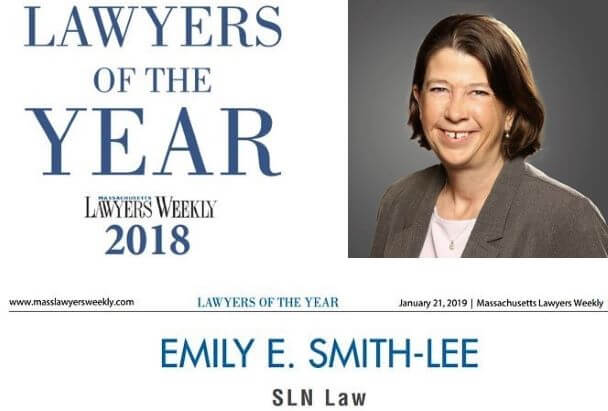Massachusetts Probate Court Process
Navigating the Probate Court Process in MassachusettsWhen a loved one passes away in Massachusetts, the distribution of their assets that do not automatically pass to heirs or beneficiaries, such as jointly owned property or trust assets, must go through the probate court process. Additionally, if there are minor children involved and no surviving parent, this process is used to appoint a guardian. In this guide, we'll walk you through the probate court process in Massachusetts and highlight key considerations.
Starting the Probate ProcessThe first step in the probate process is to determine if the deceased had a valid will. The will typically designates a personal representative (formerly known as an executor) responsible for filing the necessary documents with the Probate Court to seek formal appointment.
If there is no will or if the named personal representative is unavailable, someone else must seek appointment from the court. While it's often a family member, it doesn't have to be. Next, you'll need to determine which probate court to file in. The appropriate court is typically located in the county where the deceased person lived at the time of their death, regardless of where they passed away. Formal vs. Informal ProceedingsMassachusetts offers two options for estate administration: informal and formal proceedings. Informal administration is generally suitable when you have an intact original will and know the whereabouts of all heirs. Even if there is no will, you may still use informal proceedings to appoint a personal representative, provided you follow required notice procedures and face no objections from other heirs.
In both types of proceedings, a personal representative must be appointed, and the court's approval is required for the final distribution of the estate. Additionally, you must wait a year before fully distributing assets to allow potential creditors to make claims against the estate. Informal proceedings involve fewer steps and less active court supervision. Assets That Can Be Distributed Without Court ApprovalCertain assets can be distributed immediately because they automatically transfer to beneficiaries or surviving owners. For instance, life insurance proceeds are directly paid to beneficiaries upon proof of death. Jointly held property, whether real estate or bank accounts, immediately become the property of the surviving co-owner. These are referred to as non-probate assets, and you typically only need to provide identification and a death certificate to access them.
Should You Handle Probate Yourself?In many cases, informal probate proceedings are available and can be managed with or without an attorney. Massachusetts offers online instructions for probating an estate. However, missing a step in the process can extend the time it takes to settle the estate and distribute assets. Handling probate while grieving and managing other responsibilities can be overwhelming.
Consider seeking the assistance of an attorney who can guide you through the process, identify the appropriate proceedings, and ensure all necessary paperwork is filed correctly. You may also want to consult an accountant for help with final tax returns and estate accounting. In most cases, professional fees can be paid from the estate or reimbursed if you initially cover the costs. Let our experienced team help you navigate the probate court process with confidence during this challenging time. |
We're Here to Help.OR
|
Need Help Understanding What Assets are Part of a Probate Estate?
We have a FREE online workshop with one of our experienced estate planning attorneys to help give you the answers you need.
Meet Our Estate Planning and Probate Lawyers

Emily Smith-Lee is the owner and founder of slnlaw. She is a 1996 graduate of Boston College Law School. She was previously a partner at the Boston office of a large international firm, where she worked for thirteen years before starting the firm that became slnlaw in 2009. She has been recognized as Massachusetts Superlawyer each year since 2013, and in 2018 earned recognition as one of Massachusetts Lawyers Weekly's Lawyers of the Year.

Jenna Ordway: Jenna is a 2013 graduate of Quinnipiac Law School, and also earned an LLM in Taxation from Boston University in 2015. She has been affiliated with slnlaw since 2011, first as a law clerk and then as an attorney. Jenna has been recognized since 2019 as a "Rising Star" by Massachusetts Superlawyers. Jenna wrote a book on estate planning: The Road to Peace of Mind: What You Need to Know About Estate Planning. Jenna has helped many individuals and families with planning to protect their legacies and loved ones, and planning for the future and succession of their businesses.

Sharleen Tinnin: Sharleen is a 2010 graduate of Northeastern University School of Law, and earned her LLM in estate planning from Western New England Scool of Law in 2016. She has been with slnlaw since 2023. Prior to joining slnlaw, she worked with King, Tilden, McEttrick & Brink, P.C. on complex civil litigation matters. She previously worked for the United States Department of Justice, and received an "Excellence in Justice" award in 2017. Sharleen has helped many clients with planning for their legacies and their future, and navigating the probate process in Massachusetts after the death of a loved one.
How We Can Help
If you have questions or need assistance with probate in Massachusetts, don't hesitate to reach out. Our dedicated team is here to provide you with expert guidance and support throughout the probate process. You can use the button below to schedule a free information call, or simply give us a call at 781-784-2322.
|
Jenna Ordway
Rated by Super Lawyers loading ... |
Emily Smith-Lee Rated by Super Lawyers loading ... |



